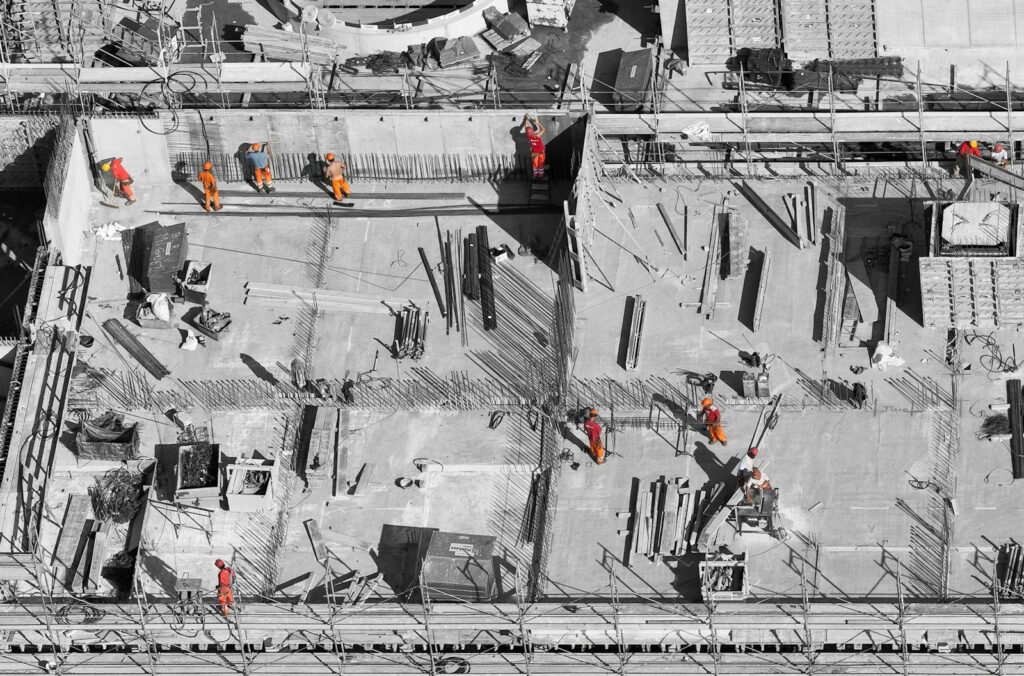The construction field is always evolving, with a growing emphasis on adopting cutting-edge technologies to boost effectiveness and output.
Among these technologies, the Internet of Things (IoT) stands out as a remarkably useful tool for the construction industry. By embracing IoT, construction firms can turn their job sites into spaces that facilitate real-time monitoring, data analysis, and informed decision-making.
In this featured article, we will delve into how IoT-enabled construction sites can transform the sector and optimize performance.
Simplifying Equipment Supervision
Efficient equipment management plays a role in every construction endeavor. Nonetheless, managing tasks like equipment assignment, maintenance scheduling, and fuel usage tracking across locations can pose challenges.
Through IoT-connected devices, companies can effortlessly supervise assets by accessing up-to-date information on their whereabouts, usage trends, and maintenance needs.
By incorporating sensors into machinery and vehicles, contractors gain insights into equipment usage patterns and can promptly identify any potential issues before they escalate.
This proactive strategy of using IoT in construction helps minimize downtime while curbing maintenance expenses. Moreover, having access to accurate fuel level data empowers businesses to streamline refueling processes and prevent fuel theft or misuse.
Enhancing Worker Safety
Ensuring the well-being of laborers at a construction site is critical. The use of technology is essential for improving worker safety by monitoring working conditions and utilizing predictive analytics.
Sensors connected throughout the worksite can assess factors like temperature, humidity, and levels of gasses. By monitoring these variables, IoT devices can alert both workers and supervisors to risks, enabling prompt actions to address any dangers effectively.
Additionally, wearable IoT devices with biosensors offer real-time insights into workers’ physical well-being. This data helps detect signs of fatigue or stress in employees, allowing for timely interventions to support their health.
Improving Supply Chain Management
Efficient supply chain management is vital for the success of construction projects. IoT technology enables tracking of materials, equipment, and personnel involved in the supply chain. This visibility provides real-time updates on inventory status, delivery schedules, and project progress.
By employing RFID tagging or GPS tracking systems, contractors can easily locate materials and monitor their movement. This enhances inventory control efficiency and minimizes delays caused by stock shortages or misplaced items. Having access to information regarding the availability of materials empowers project managers to make decisions about scheduling work and predict potential bottlenecks.
In addition, IoT-based supply chain management extends to monitoring personnel as well. Wearable devices with location sensors allow site managers to ensure that workers are present in designated areas during tasks. This not only enhances security measures but also improves workflow by avoiding overcrowding in certain areas and preventing unauthorized access.
Utilizing Data for Decision-Making
One of the advantages of IoT-enabled construction sites is the wealth of real-time data they generate. This data offers insights for making decisions at different project stages.
By employing analytics and machine learning algorithms, IoT devices can monitor key performance indicators (KPIs) like productivity rates, energy usage patterns, and equipment utilization. Site managers can analyze this information to pinpoint inefficiencies and implement optimizations as needed.
Access to real-time data also allows contractors to swiftly respond to situations or make changes in project scope. By leveraging predictive analytics capabilities, construction companies can proactively adjust resource allocation or timelines to mitigate disruptions.
Promoting Environmental Sustainability
The construction sector is increasingly prioritizing sustainability, with IoT technology playing a role in promoting eco-friendly practices. Connected devices on construction sites that utilize IoT technology can play a role in monitoring and cutting down energy usage, optimizing the use of resources, and supporting environmentally friendly practices.
By incorporating sensors into structures, builders can collect information on how energy is used and pinpoint areas where improvements are needed. This data enables the implementation of energy-efficient solutions like smart lighting systems and automated controls for heating, ventilation, and air conditioning (HVAC).
Moreover, real-time tracking of water consumption helps in conservation efforts by detecting leaks or unnecessary usage.
5 Benefits of Construction Project Management Software in 2023(Opens in a new browser tab)
In Summary
IoT-enabled construction sites have demonstrated their capacity to significantly improve efficiency and productivity throughout the industry.
Through equipment management, enhanced safety measures for workers, improved handling of the supply chain, and making decisions based on data insights, IoT provides construction companies with unparalleled operational awareness and authority.
Embracing these technologies allows construction firms to navigate the landscape successfully while maximizing profits and completing project successfully.
